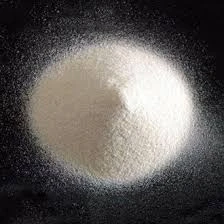
Out . 18, 2024 14:57 Back to list
Hydroxyethyl Cellulose Powder for Thickening and Stabilizing Formulations in Various Applications
Exploring Hydroxyethyl Cellulose Powder A Versatile Polymer
Hydroxyethyl cellulose (HEC) powder is a water-soluble polymer derived from cellulose, which is a natural polymer found in the cell walls of plants. This compound has gained popularity in various industries due to its remarkable properties and versatility. In this article, we will delve into the characteristics, applications, and benefits of hydroxyethyl cellulose powder.
Properties of Hydroxyethyl Cellulose Powder
Hydroxyethyl cellulose stands out for its exceptional solubility in water, forming a clear, viscous solution. The powder itself is odorless, tasteless, and non-toxic, making it an appealing additive in various formulations. HEC is also known for its ability to modify rheological properties, which allows it to function as a thickening, suspending, and stabilizing agent. Its viscosity is influenced by concentration, molecular weight, and temperature, enabling formulators to adjust it to meet the specific needs of their applications.
Another significant characteristic of HEC is its non-ionic nature, which means it does not carry an electrical charge. This property ensures compatibility with a broad range of other ingredients, including ionic compounds, making it an ideal choice for various formulations. Moreover, hydroxyethyl cellulose is resistant to heat, inorganic salts, and a broad pH range, which broadens its usability across different environments.
Applications of Hydroxyethyl Cellulose Powder
The versatility of hydroxyethyl cellulose powder leads to its application across numerous industries, including cosmetics, pharmaceuticals, food, and construction
.1. Cosmetics and Personal Care In the beauty sector, HEC is extensively used in cosmetic formulations such as creams, lotions, shampoos, and gels. Its thickening and emulsifying properties help stabilize products while enhancing their texture and usability. Additionally, it provides a smooth application and improves the sensory feel of formulations.
hydroxyethyl cellulose powder

2. Pharmaceuticals HEC is employed in the pharmaceutical industry as an excipient in tablets and capsules. It improves the dispersibility of active ingredients and controls the release of drugs in the body. Furthermore, its bioadhesive properties facilitate the adhesion of formulations to mucosal surfaces, contributing to enhanced drug delivery systems.
3. Food Industry As a food additive, hydroxyethyl cellulose acts as a thickener and stabilizer in various products, including sauces, dressings, and dairy products. Its ability to retain moisture is particularly beneficial in extending the shelf life of food items while maintaining texture and consistency.
4. Construction In construction, HEC is often used in cement-based formulations such as mortars and plasters. It improves workability, extends open time, and enhances the adhesive properties of these materials. By adding HEC, manufacturers can ensure a more robust and durable final product.
Benefits of Hydroxyethyl Cellulose Powder
The utilization of hydroxyethyl cellulose powder brings several advantages to various formulations
- Ease of Use HEC is straightforward to incorporate into formulations, making it a favorite among manufacturers. - Versatility Its wide range of applications across different industries showcases its adaptability and multifunctional capabilities. - Safety Being non-toxic and non-irritating, HEC is safe for use in products that come into contact with skin and food, providing peace of mind for both producers and consumers. - Performance Hydroxyethyl cellulose enhances the performance of products by providing desirable physical properties such as improved viscosity, stability, and texture.
Conclusion
In conclusion, hydroxyethyl cellulose powder is a remarkable polymer with extensive applications and benefits across various industries. Its unique properties, including water solubility, non-ionic nature, and versatility, make it an invaluable ingredient in formulations ranging from cosmetics to pharmaceuticals and construction materials. As consumer demand for high-quality and effective products continues to rise, the role of hydroxyethyl cellulose in ensuring product performance and stability is more significant than ever. Whether you're a manufacturer or a consumer, understanding the benefits and applications of HEC can provide insights into the modern formulation landscape.
-
What Is HPMC: Meaning,Applications
NewsApr.02,2025
-
Redispersible Polymer Powder (Rdp): Uses, Price, And Suppliers
NewsApr.02,2025
-
Hydroxyethyl Cellulose (Hec): Uses, Suppliers, And Buying Guide
NewsApr.02,2025
-
Hpmc (Hydroxypropyl Methylcellulose): Applications, Suppliers, And Buying Guide
NewsApr.02,2025
-
Guide to Mortar Bonding Agent
NewsApr.02,2025
-
Buying Guide to Redispersible Powder
NewsApr.02,2025







